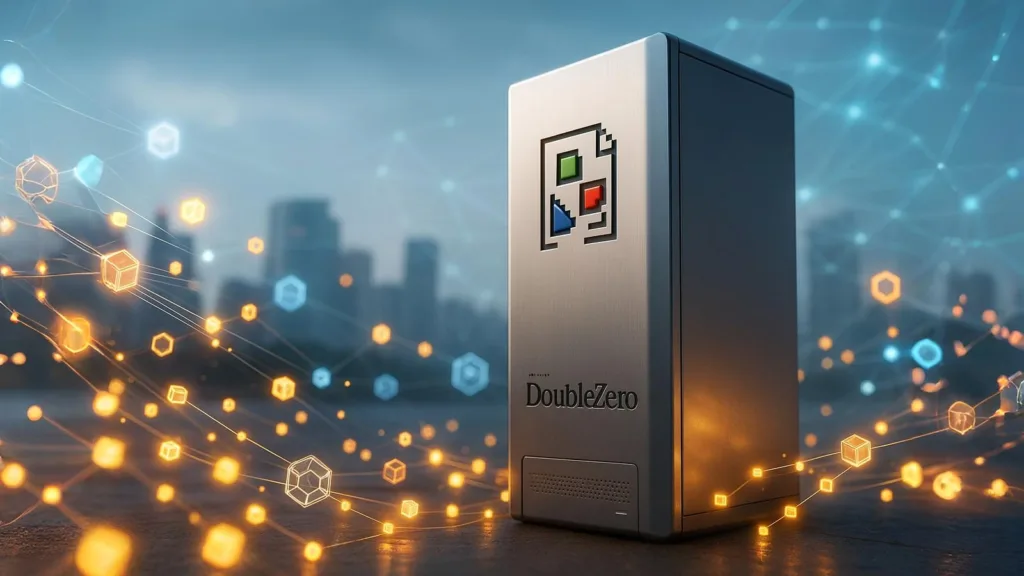- DoubleZero has launched a high-speed fiber-optic network for blockchain traffic and debuted its native utility token.
- The SEC confirmed that DePIN tokens are not securities, allowing public launch without regulatory obstacles.
- The network hosts over 70 high-speed links across 25 locations, reducing latency and enhancing throughput for distributed blockchain systems.
The DoubleZero protocol, a high-speed fiber-optic network dedicated to blockchain traffic, has launched its mainnet-beta alongside the public debut of its utility token. The network aims to reduce blockchain’s reliance on the public internet and overcome inherent speed limitations.
DoubleZero’s decentralized physical infrastructure network (DePIN) now operates over 70 direct high-speed links across 25 geographic locations, routing blockchain traffic directly between sources and destinations to minimize latency and maximize throughput.
Public internet was not designed for distributed consensus protocols, being congested with general-purpose traffic such as gaming and media streaming. The downside of the public internet is that it was never built for high-performance systems. It was always built for this sort of relationship of one big server talking to one little server.
Newsletter
Get weekly updates on the newest crypto stories, case studies and tips right in your mailbox.
SEC clears DePIN token from oversight
In a significant regulatory development, the US Securities and Exchange Commission (SEC) issued a no-action letter confirming that DoubleZero’s native tokens are not considered securities. SEC Commissioner Hester Peirce explained that node operators earning tokens for storage, bandwidth, or other services function as owner-operators rather than investors, and the tokens are compensation for work performed.
The SEC’s decision allows the public launch of DoubleZero’s token, following a closed sale to validators in April, and marks a major shift from the agency’s previous stance under former Chairman Gary Gensler, when most crypto tokens were categorized as securities. Litigation during that period cost crypto firms at least $426 million, according to advocacy group The Blockchain Association.
DoubleZero’s launch of a dedicated high-speed network signals a maturing blockchain industry that is moving away from reliance on the public internet and its fundamental limitations.












